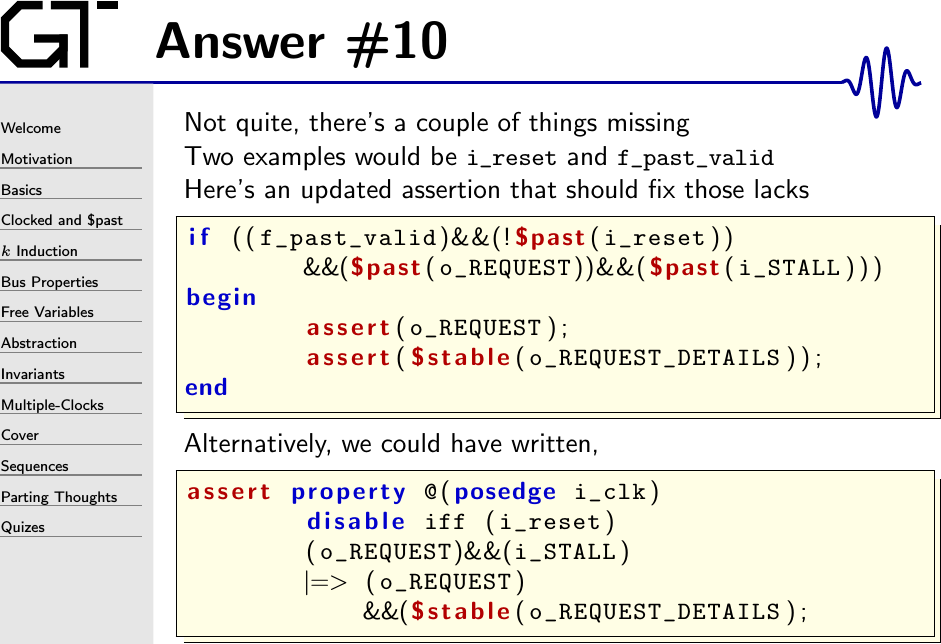Answer to Quiz #10
 |
The problem with assertions about the $past() is their value prior to the
first clock tick. For this reason, we add the check for f_past_valid.
reg f_past_valid;
initial f_past_valid = 0;
always @(posedge i_clk)
f_past_valid <= 1;
always @(posedge i_clk)
if (f_past_valid && $past(o_REQUEST) && $past(i_STALL))
// ...That’s not enough, however, since the reset might’ve been active in the past
as well. In the case of a reset, o_REQUEST should then be false. We might
therefore rewrite this assertion as,
always @(posedge i_clk)
if (!f_past_valid || $past(i_reset))
begin
assert(!o_REQUEST);
else if ($past(o_REQUEST) && $past(i_STALL))
begin
assert(o_REQUEST);
assert($stable(o_REQUEST_DETAILS));
endAs the slide above points out, you could also do this with a concurrent
assertion instead of with immediate assertions. The following concurrent
assertion (without the f_past_valid would (just about) check the same thing.
assert property (@(posedge i_clk)
(!i_reset)&&(o_REQUEST)&&(i_STALL)
|=> o_REQUEST && $stable(o_REQUEST_DETAILS));The slide above recommends using disable iff. This would work as well,
although there is a subtle difference when using it. Can you tell what that
difference would be? If not, we’ll come back to the topic in Quiz 19.
